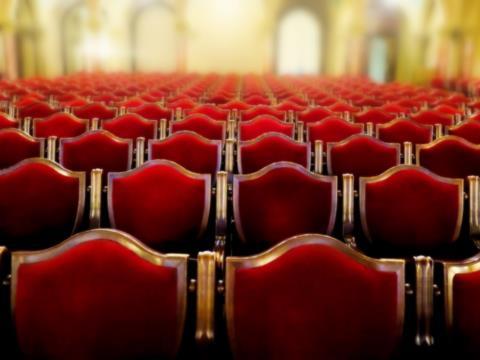The benefits of bonding theatre and science

For science graduates, the ability to communicate abstract knowledge in an engaging manner, especially to non-specialists, is highly desirable. This ability is relevant in all areas of professional life, including for science communication, public engagement, funding proposals and influencing policy. We believe innovative techniques such as open-space learning (OSL) can help build these communication skills.
OSL applies the theories and practices of theatrical workshops to the university curriculum. It aims to help teachers and learners reach beyond the traditional boundaries of their disciplines and broaden course learning outcomes. For example, abstract chemical concepts, such as electron exchange and chemical reactivity, can be made physically vivid and more memorable in an OSL workshop.
Chemistry students at the University of Warwick in the UK and at Monash University in Australia have been using OSL methods in a collaborative project, Performing Chemistry, since 2012.
What do the students do?
First-year chemistry undergraduates are invited to a series of interdisciplinary workshops to introduce them to theatrical practices and theories. Through theatre games and exercises, suitably adapted to deal with concepts in chemistry, students create their own learning environment and make new relationships with one another.
For example, a practical theatre workshop may start with ice-breaking exercises designed to build trust, establish common ground and allow students to get to know each other in a semi-structured, fun environment.
This hybrid environment enables students to become inquiry-led individuals, ultimately becoming more employable, and global citizens
In further activities, students are expected to use their research skills to prepare, before performing their findings through physical activity, theatre games or the creation of short scenes and scenarios.
They might be assigned a particular chemical element and asked to research the history of its discovery and its assorted physical and chemical properties. Students demonstrate this knowledge through role-play or by arranging themselves in a certain order, such as by melting point or number of valence electrons.
‘Chemical conversations’ are dramatised hypothetical discussions between two scientists, or perhaps a scientist and a novice. Over the years we have been entertained with Democritus chatting to Ernest Rutherford about atoms, J J Thomson explaining the existence of electrons to John Dalton, and Einstein and Schrodinger battling it out over quantum theory. Students are explicitly asked to ensure the audience learn something from the performance.
In another example, small groups of students collaborate to write a script for a short portrayal of a significant moment in chemistry history. Past topics have included the debate over who was first to discover oxygen, the discovery of DNA, or whether group 12 elements should be considered transition metals (performed by one group as a courtroom drama).
For the last five years, each cohort’s final performance has involved students from both universities performing collaboratively via an international videoconferencing portal.
What are the benefits of this approach?
For emerging scientists, relating discoveries to a social and personal context can help demystify science. By relating to a famous chemist’s life, for example, they get to encounter the people behind the discoveries and consider how scientific practice has evolved through time.
The traditional lecture theatre or teaching laboratory will always have a role in the teaching of sciences. But by including innovative concepts and practices such as OSL, teaching will become more inclusive and provide a much rounder preparation for a professional who will not only need to be knowledgeable, but also have diverse skills.
We believe Performing Chemistry reaches out across boundaries: between arts and science, and across continents and time-zones. This hybrid environment enables students to become inquiry-led individuals, ultimately becoming more employable, and global citizens.
Open-space learning can help students with:
- Identifying key properties and histories of chemical elements
- Critical and analytical thinking about the ways histories and personalities can inform and influence the sciences
- Communicating findings clearly and effectively
- Independent and team-based study
- Reflecting on personal development
Jonathan Heron is a principal teaching fellow at the University of Warwick. Felix Nobis is a performer and academic at Monash University’s centre for theatre and performance. Peter Sadler is professor of chemistry at the University of Warwick. Isolda Romero-Canelon is a senior research fellow in the Sadler research group. Christopher Thompson is the associate dean for education for Monash University’s department of science









1 Reader's comment